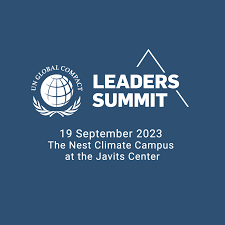The commitment to a sustainable future has never been stronger. The UN Global Compact Leaders Summit 2026 is here to solidify that promise.
The annual UN Global Compact Leaders Summit, recognized for fostering conversations between business magnates, governmental bodies, civil society, and stakeholders on the Sustainable Development Goals (SDGs), returns with fervor for its 2024 edition. Following a rousing success in 2024, this year’s summit promises to be not only a continuation but a leap forward in the right direction.


